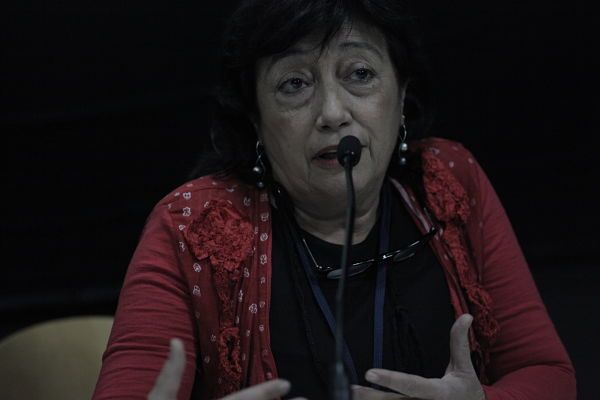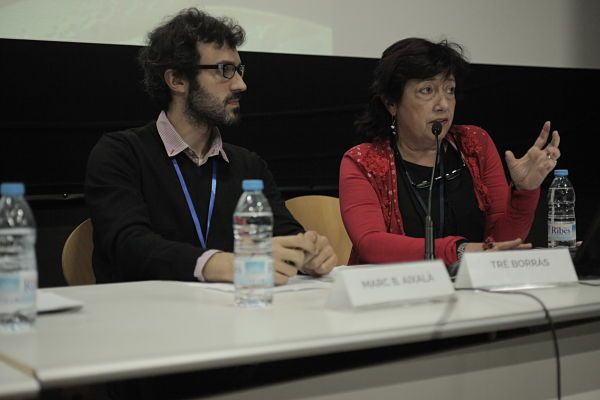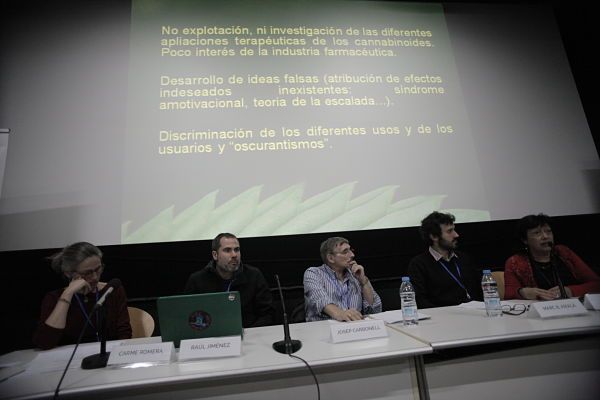- The Director of the Addictions and Mental Health Service at the Hospital Universitario Sant Joan and Reus's Action Plan Against Drugs, Tré Borras, participated en in the 1st Cannabmed Medical Cannabis Congress, where discussions were held on the potential of cannabis derivatives to combat addictions to other drugs and reduce the risks involved in treating dependency on certain substances.
- At Dinafem we talked with this social education worker and psychiatrist-psychotherapist, who, among other things, told us that "we should expand our vision and come up with cannabis-based preparations similar to other drugs" for treatments to alleviate the harmful effects of dependence on certain drugs.

At Cannabmed he participated in a panel discussion entitled "The potential of cannabis in the treatment of drug abuse and risk reduction".
What potential does cannabis offer in the treatment of other addictions?
Cannabis would be given a therapeutic use, replacing a substance that has led to addiction problems with another that poses fewer risks than the substance at the root of the problem.
It seems that other avenues can be opened up. There are prospects for the therapeutic uses of cannabis being deployed as "proxies" in treatments for dependency on other substances. It has been used in treatments to alleviate dependence on alcohol, with positive results. In this way cannabis would be given a therapeutic use, replacing a substance that has led to addiction problems with another that poses fewer risks than the substance at the root of the problem. In a theoretical framework of harm and risk reduction, we must remember that pharmaceuticals are not without side effects, but we carry out a risk / benefit assessment to apply a given treatment. I think that cannabis should be considered in the same way, analysing the risks and benefits of the substance before implementing treatment. We should expand our vision and come up with preparations derived from cannabis similar to other medications. A future is conceivable in which it could be used to treat addictions.
Wouldn't there exist the danger of creating a new addiction, cannabis, in the patient?
We would have to assess the relationship established between the person and the substance, which relationship will always depend a lot on aspects like experiences, situations, and the context or when the substance-person interaction takes place. What we do know is that cannabis derivatives do not produce physiological dependence. The dependence is more psychological, and has to do with many individual and group factors that we will have to research.

Have you experimented with this type of treatment with patients?
My experience in this regard is almost nil. What I have done is to advise people who are abusing or have been diagnosed as dependent on a substance, and who also consume cannabis. The idea would be to discontinue the riskiest consumption and maintain those that which is not as risky, and that can help to alleviate the effects of withdrawal. In the case of alcohol, for example, one must keep in mind that alcohol abstinence results in a very significant physical reaction, which usually requires pharmacological treatment. Because when withdrawal is severe enough, there is even the risk of death.
How would cannabis benefit a patient in such a case?
It would deliver anxiolytic effects, which would the offset the anxiolytic imbalances generated by withdrawal.
What kind of cannabis would it be advisable to take in these cases? And how?
Consistent with our approach in the health sector, it should be consumed in the safest possible way; that is, with vaporisers, or controlled preparations. It is especially important to know the combinations of the multiple cannabinoids of the strains consumed. Today we already have this information, thanks to research in places where cannabis is already being used for therapeutic purposes.
What cannabinoids would be the most suitable to mitigate the effects of other drug addictions?
CBD would be what could help manage anxiety in the most appropriate manner. There are sure to be other components, but I wouldn't venture to say which.
Have you been in direct contact with patients and doctors who use cannabis in treatments?
No. My experience is essentially academic, and comes from actual cases in the Netherlands, Uruguay, California, Colorado, Colombia and Mexico. There have been many therapeutic experiences with cannabis in many different places. But Spain is not one of them.

How do you view the use of medical cannabis in Spain today? And what future do you see for it?
The public is increasingly aware of the therapeutic use of cannabis. Progress has been made thanks to the Spanish Medical Cannabis Observatory, resulting in an emerging movement. I think there is a greater eagerness to normalise these uses. At Cannabmed we have been able to share experiences with users and their family members, with patients at clinics, etc. This is a sign that things are changing for the better. Some time ago a conference like this one never even would have been considered.
As the director of Reus's Action Plan on Drugs, what measures do you consider necessary, what for, and why?
As a mental health professional specialising in addictions, I think it is important to have the greatest possible range of options for therapeutic issues. I think we should do more research into the field of cannabinoids because these treatments have been demonstrated to boast great promise. The fact that rules and regulations are being established governing cannabis derivatives seems to me a positive development. What is happening at cannabis social clubs, and platforms like "Responsible Regulation" and the OECM (Spanish Medical Cannabis Observatory) enables us to look at the groups and contexts where accurate information can be distributed so that consumption is handled better. For example, through clubs, directly or indirectly, objective, high-quality information can be distributed, as well as methodologies that can increase awareness and educate people, thereby improving consumption.
Do you believe that there is a lack of information about cannabis in our society?
There is misinformation that leads to confusion, and anything we can do to clear these points up I consider important.
What is your assessment of the first edition of Cannabmed?
Cannabmed has been a very valuable initiative. It has opened up new ideas and perspectives for all of us who have participated, and generated exchanges and connections at all levels. Very important figures in the cannabis sphere have participated, and I really liked the combination of personnel from the sector, the public, and parliamentary representatives, who heard the conclusions drawn. Very interesting participation work was done. The discussion groups listened to the concerns of the participants and medical cannabis users. This was a characteristic giving it an edge on other types of congresses at which only professionals participate. User participation was very carefully handled, to really listen to people's needs and concerns.



Comments from our readers
There are no comments yet. Would you like to be the first?
Leave a comment!Did you like this post?
Your opinion about our seeds is very important to us and can help other users a lot (your email address won't be made public).